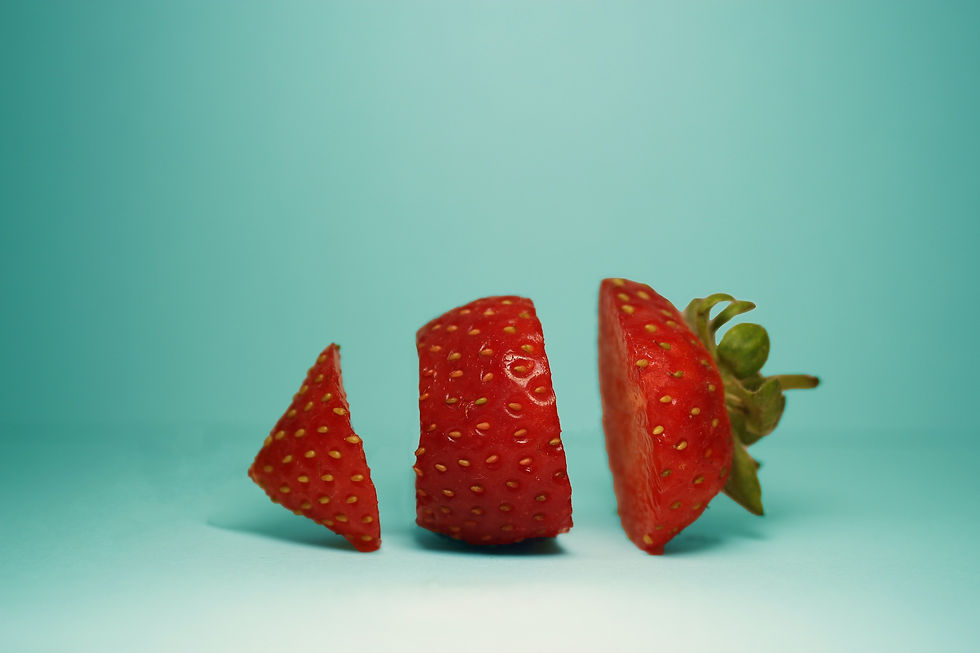If You Struggle with Food, You Might Be Making this Common Mistake
- Paige Smathers

- Sep 14, 2016
- 3 min read

We all know how important healthy, nutritious eating is to our overall well-being and quality of life. As an effort to make improvements in food choices, some turn to fad diets (I don’t recommend those) or a complete lifestyle makeover or something in between such as weekly behavior change goals. While I applaud anyone attempting to improve their health and life in general, I think many of our best efforts for healthy living actually end up harming us rather than helping us.
There are many ways our healthy eating efforts can be potentially problematic but I’ve chosen to focus on one thing I see over and over again with the clients I work with on an individual basis. Chances are, if you struggle with food, you likely struggle with some form of all-or-nothing thinking. Let’s talk about what all-or-nothing thinking is, how it takes form and what this type of thinking can lead to with our food choices and relationship with food.
An example of all-or-nothing thinking
Picture this: you’ve committed to a day of healthy eating. You start off with a satisfying, healthy and well-balanced breakfast and you’re feeling pumped about the day. You even got up a little extra early and packed a lunch for the day and an afternoon snack. You show up at the office and someone brought in their famous homemade chocolate chip cookies. You’re tempted by these delicious cookies because you know the person who made them and he has a reputation for making amazing treats, but you’re really wanting to stick to your idea of a healthy day of eating.
By 11am you find yourself in front of the cookies, contemplating what you’re going to do. Your mind races with thoughts like, “Why are you so weak? You committed to doing better today! You really shouldn’t eat those cookies. But they look so good! Maybe just one…” and the next thing you know you’ve downed a cookie without even tasting it. In the next five minutes you’ve eaten four more cookies because you think, “Might as well, the day is already ruined.”
The next thoughts that creep in go a little something like this, “You never follow through with what you say you’ll do. You are a screw up. I’m so disgusted. I’ve already ruined the day so I might as well just give up on my healthy eating efforts for the day—maybe I’ll start again tomorrow.”
You opt to go out to lunch rather than eating your packed lunch because you’re so bugged with yourself. You order that soda that you normally wouldn’t because you’re just already over the day. Then you show up at home after your work day and binge on everything in sight before you even start making dinner. You go to bed sick with fullness and sick with anger toward yourself for letting yet another day slip through your fingers.
How all-or-nothing thinking damages our relationship with food
Instead of this scenario, think about how things would have (or could have) gone down minus the all-or-nothing thoughts. It would go a little something like this: you eat a great breakfast, see the cookies and think, “Hmm, those look good—maybe I’ll grab one to eat with my lunch.” And then you’d move on with your day, enjoying your foods and being far more productive because food and thoughts of self-defeat aren’t all-consuming. You’d likely end the day with a well-balanced dinner and wouldn’t stress the one cookie you ate that day. You’d recognize that a cookie here or there, especially when it’s something you really love and really wanted that day, is a completely appropriate part of a healthy lifestyle.
Food really isn’t black and white; it isn’t an all-or-nothing issue. There’s nuance with food and eating—a cookie after a well balanced lunch can feel satisfying and fun whereas a cookie first thing in the morning isn’t likely going to make you feel great.
Some might think that setting up rigid all-or-nothing food rules will lead to more control and a greater ability to eat healthy. The truth is, these all-or-nothing thoughts and rules just end up making us feel defeated, leading to poorer nutrition choices and making the healthy lifestyle changes you desire even more out of reach.
If you are an all-or-nothing thinker, you might want to examine how that plays out with food and see if you can learn to apply some nuanced, compassionate thinking into your food and eating. You’ll likely see an improvement in your overall choices when you let go of the paradigm of all-or-nothing and choose nuance instead.







Comments